7. In a Better World (Hævnen)
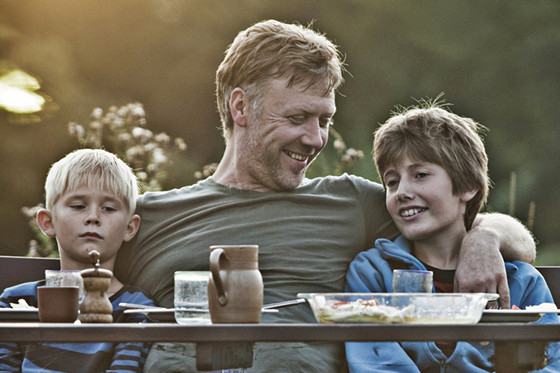
If she had not proved it before, “In a Better World” displayed Susanne Bier as one of the elite directors in Denmark. The 2010 dramatic thriller stars Mikael Persbrandt as Anton, Trine Dyrholm as Marianne, and Ulrich Thomsen as Claus, and revolves around the relationship between two families.
The first family consists of Anton, a kind-hearted doctor who works at a refugee camp in Sudan, his wife Marianne, and their son Elias. The other family consists of a boy named Christian and his father, Claus. The two children, who are virtual opposites, befriend each other when Christian threatens one of Elias’s bullies with a knife.
One day, the two boys get into a fight with another boy, and when Anton breaks up the fight, he is verbally assaulted and slapped by the boy’s father. He later seeks out the father with the same results, and the two boys begin plotting their revenge. The movie works with contrasts in a great way, moving from the brutal refugee situation in Sudan, to the sleepy life in a Danish village, yet it manages to draw parallels, and it has some interesting points of view on matters like ‘good’ and ‘evil’.
“In a Better World” cemented Susanne Bier as one of the best directors in Denmark, and it won the Academy Award for Best Foreign Language Film.
6. King’s Game (Kongekabale)
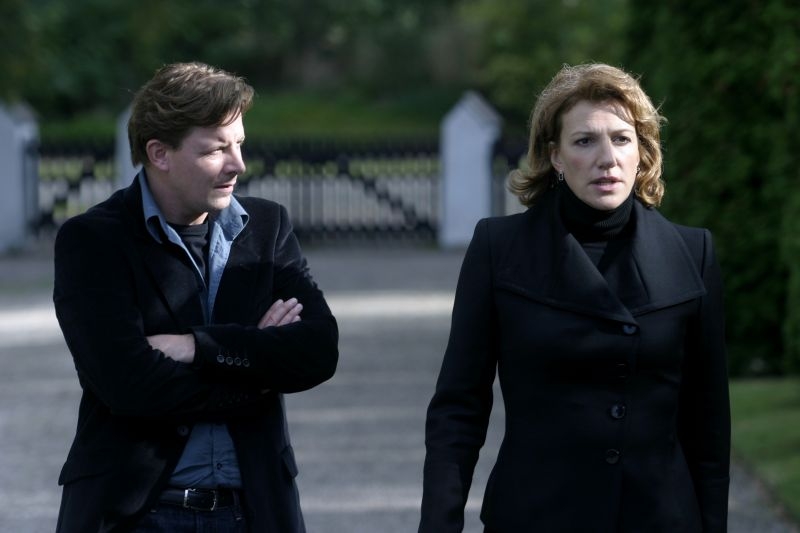
“King’s Game” is without a doubt the best political thriller about the Danish government. The movie, directed by Nikolaj Arcel, is set during the days before the parliamentary election, where the main candidate of the Centre Party is involved in a car crash. The story is told from the perspective of the young journalist Ulrik Torp (Anders W. Berthelsen), who is covering the election, and the internal struggle for power in the Centre Party.
He receives a tip-off from Peter Schou (Lars Mikkelsen), the Centre Party press coordinator, that turns out to be a false story to incriminate Lone Kjeldsen (Nastja Arcel), the next candidate for Prime Minister. Slowly, Torp unravels the extensive political conspiracy, and soon it turns out some of the top names are involved.
“King’s Game” was praised by critics and audiences alike as an exciting political thriller, and was described as the best Danish movie of 2004. The movie is entirely fictional, but it is quite easy to watch it with names of certain political figures in mind.
5. Babette’s Feast (Babettes gæstebud)
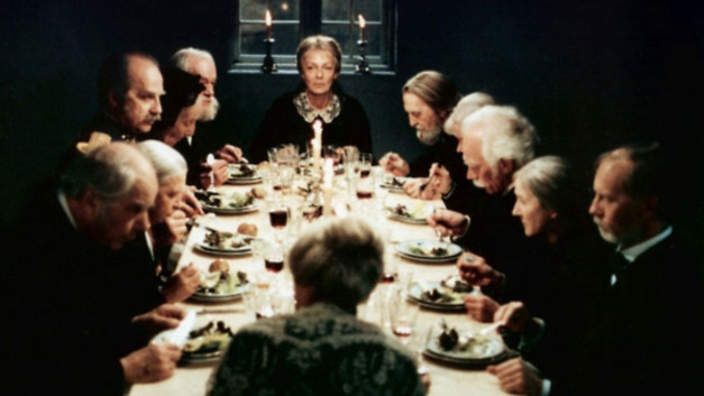
“Babette’s Feast” is based on the short story of the same name by Karen Blixen, and it was the first Danish movie that won the Academy Award for Best Foreign Language Film. The movie is set in the late 19th century, where master chef Babette Hersant (Stéphane Audran) has to flee France and seek refuge in Denmark, where she is hired as a housekeeper.
In this new society she is barely appreciated, and her talents are wasted, but once she wins the lottery, she decides to cook a real French dinner for the people she works for.
The movie had a massive cultural impact, and even some of the dishes described became classics. It even found its way into the “Danish Culture Canon”.
4. Day of Wrath (Vredens Dag)
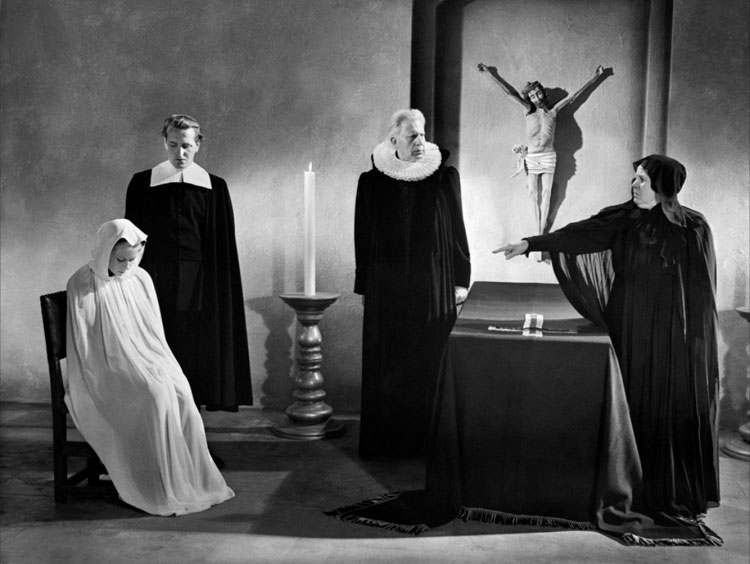
In terms of the classic directors of Denmark, the most prominent has to be Carl Theodor Dreyer. He is described as the first great Danish director, and he has influenced countless other directors, including Ingmar Bergman and Lars von Trier.
“Day of Wrath” is among his best movies. The tragic love story is set in the 1620s, when witch hunting was at its peak. Here, elderly priest Absalon Pedersson (Thorkild Roose) marries a much younger woman named Anne (Lisbeth Movin), but she falls in love with Martin (Preben Lerdorff Rye),
Absalon’s son from his previous marriage. One day, Absalon dies after Anne said she wished him dead, and she is accused of witchcraft. According to some sources, the movie is partially based on the case of Anne Pedersdotter, who was an alleged witch in Norway in real life.
As one of the only movies to showcase Denmark in the religious periods, “Day of Wrath” is a brilliant tale of a society where religion has such a strong hold on the mind that passion is mistaken for the work of the devil. Furthermore, the movie was released during the German occupation of Denmark in 1943, and even though Dreyer denied the interpretation, it is difficult to not view the witch hunting as an allegory for something else at that time.
3. The Celebration (Festen)
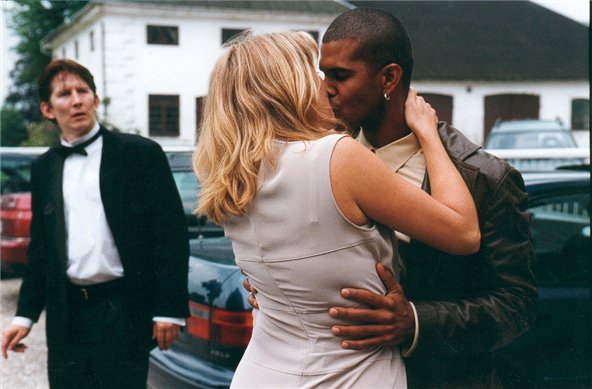
Where Dreyer was one of the best directors of older times, Thomas Vinterberg is one of the best in modern times. As the co-creator of the Dogme 95 movement, Vinterberg made the first movie that followed the Dogme 95 manifesto in 1998.
“The Celebration” is set during the celebration of Helge’s (Henning Moritzen) 60th birthday. During the joyful evening, his son Christian (Ulrich Thomsen) delivers a speech, in which he accuses his father of sexually abusing him and his sister (who had recently committed suicide).
This film is a brilliant portrayal of how the suppression of a horrible truth can lead to its complete denial, even when the truth is actually told. This is clearly shown in the movie; once Christian speaks up, the initial reaction is shock, and some even try to write it off as a joke, but once they realize that he is serious, they ignore him. When Christian speaks up again, he is told by his mother that it must be a product of his strong imagination.
“The Celebration” was a hit with audiences and critics in multiple countries, it was praised by several other directors around the world, and it established Thomas Vinterberg as a world class director.
2. The Word (Ordet)
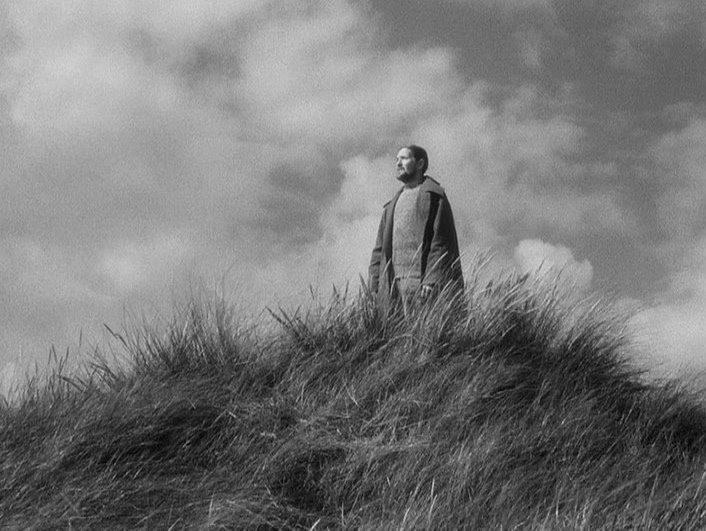
The second to last movie Carl Theodor Dreyer directed was “The Word” in 1955. The story centers on Morten Borgen (Henrik Malberg), who has a very strong religious belief, and his three sons: Mikkel Borgen (Emil Hass Christensen), who does not share his father’s beliefs, Johannes Borgen (Preben Lerdorff Rye) who has gone insane after studying theology, and Anders Borgen (Cay Kristiansen), who is in love with a girl of a different belief. The movie explores the characters’ relationships to their own religion and the religions of others, and their religious differences.
Often times, “The Word” is described as Dreyer’s best and most important movie. Of his 14 movies, it won the most awards and was the most financially and critically acclaimed movie he ever made.
1. The Hunt (Jagten)
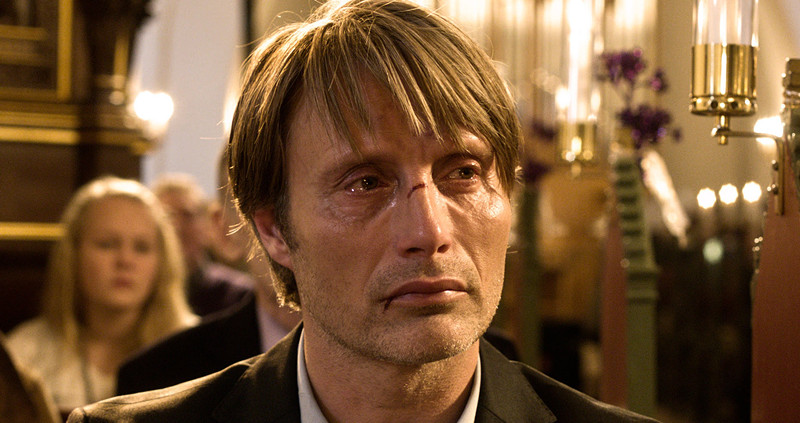
Undoubtedly, the best and most popular movie by Thomas Vinterberg is the 2012 masterpiece “The Hunt”. It stars Mads Mikkelsen as Lucas, a goodhearted kindergarten teacher whose life is thrown into chaos when one of the children, Klara, wrongfully accuses him of pedophilia.
“The Hunt” is an extraordinary but brutal portrayal of how a lie can completely ruin a person’s life, and how a community can tend to believe the worst in people. Even when Klara confesses she was lying, the adults dismiss it as denial. Vinterberg has proved in the past that he is no stranger to controversial subjects, and with “The Hunt”, he shows how accusations of pedophilia, legitimate or not, can brand a person forever.
“The Hunt” received multiple awards, both for the movie itself and the fantastic performance by Mikkelsen. It was praised by critics and audiences worldwide, and it cemented Vinterberg as one of the best directors of Denmark (and perhaps even the world).
Author Bio: Alexander Buhl is the Denmark based cinephile with a passion for rule-breaking movies. His enthusiasm for movies is only exceeded by his enthusiasm for complaining about the overused clichés in movies.